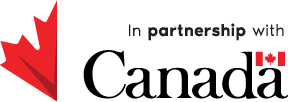Camino Verde
The Situation
Alta Verapaz, in north central Guatemala, has some of the worst poverty and inequality in Latin America – and it is increasing for Indigenous women and youth.
Alta Verapaz is the poorest region of Guatemala, with 83 per cent of the population living in poverty and 54 per cent living in extreme poverty. Most of this region is rural and is home to a predominantly Indigenous society. Youth between 15 and 29 represent just over a quarter of the population; two-thirds of the youth are Indigenous.
Women's participation in the Alta Verapaz economy is minimal: of the 37 per cent of the economically active population, only seven per cent are women. Access to employment is more difficult because 82 per cent of men believe their spouses must ask for permission to participate in activities outside the home, including work. Unemployed women have been shown to suffer much higher rates of violence compared to women who are employed. The rate of domestic violence and femicide in Alta Verapaz is one of the highest in the country.
The government of Guatemala introduced a national policy to support women's economic development, with a special focus on Indigenous women. However, it is not being implemented in Alta Verapaz. Women and youth – particularly those from Indigenous communities – remain disadvantaged due to a lack of training and education.
Economic opportunities for rural Indigenous youth are limited, often leading to migration for work or involvement in criminal activities. Young Indigenous women have fewer opportunities than men and lack access to essential services. Many women feel that their only chance for a future is through marriage.
DETAILS
LOCATION
Guatemala
DURATION
5 years (2019-2024)
Lire la description du programme en français (PDF).
OUR SUPPORTERS
This project is undertaken with the financial support of the Government of Canada, provided through Global Affairs Canada, and the generous Canadian public.

What are we doing?
AWARENESS
Increasing awareness and promoting positive attitudes and behaviours towards economic empowerment and human rights to uplift Indigenous women and youth.
EMPOWERMENT
Empowering Indigenous women and youth to launch socially and environmentally responsible small businesses while increasing access to ethical markets.
ADVOCACY
Working with women's rights organizations and other groups to influence policies and programs that support Indigenous women's economic empowerment and human rights.
What have we achieved so far?
Oxfam has contributed to creating a functioning green economy for small-scale enterprises in Alta Verapaz. We've supported the development of sustainable business practices for small-scale enterprises headed by Indigenous women and youth. By helping these enterprises grow and prosper, we're increasing social, economic, and political engagement across a wide range of sectors regarding Indigenous women and youth's rights, participation, and leadership. As a core part of the program, we've conducted training for community leaders and community members on women's rights and, specifically, the right of all women to live a life free of violence.
This project has achieved significant milestones, including:
- Over 21,000 people, mostly indigenous adult women and young women, have been reached through our economic empowerment efforts.
- We've trained over 15,000 Indigenous women and youth on sustainable farming, clean technologies, business skills, and land rights.
- 11 women-led and 2 youth-led businesses have officially established their small-scale operations.
- 36 women from land committees have successfully registered with the Land Fund, making it easier for them to get land.
- The Municipality of Raxruhá invested around CAD 13,000 to support local agriculture, benefiting 301 women.
- The skills and abilities of indigenous women and youth leading 54 active economic projects have been strengthened.
Our project partners
- Articulación Nacional de Mujeres Tejiendo Fuerzas para el Buen Vivir (ASOMTEVI)
- Asociación Nuevo Horizonte (ANH)
- Asociación Probienestar en Acción Saaq Aach'ool Nimla K'aleb'aal (APROBASANK)
- Centro de Investigación, Capacitación y Apoyo a la Mujer (CICAM)
- Asociación Maíz de Vida / Socialab